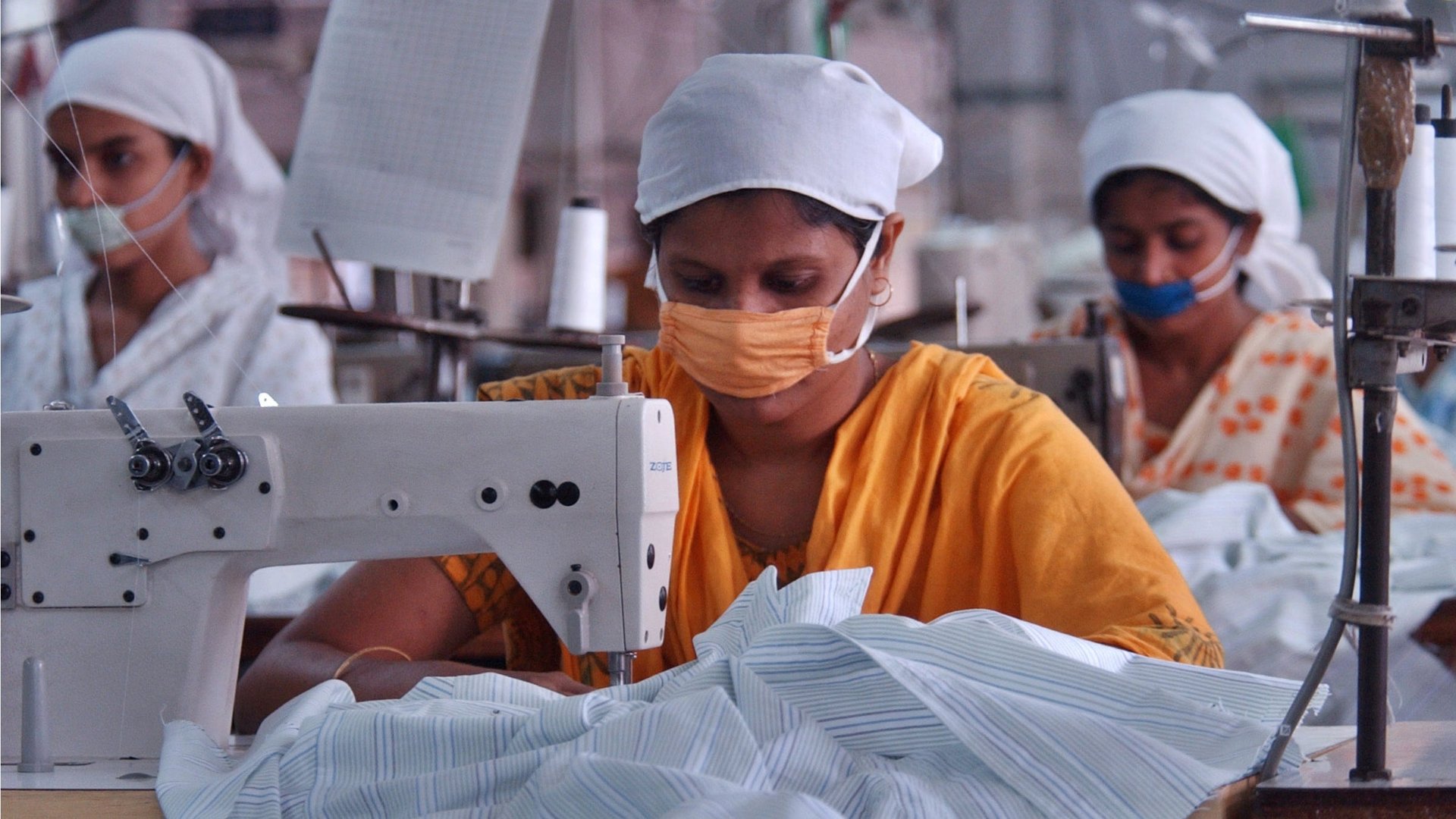Abercrombie & Fitch signed a safety agreement, but that doesn’t mean Bangladeshi workers will be safe
DHAKA, Bangladesh—After a factory collapse that left more than 1,100 people dead, manufacturers and workers feared a mass exodus of industry.


DHAKA, Bangladesh—After a factory collapse that left more than 1,100 people dead, manufacturers and workers feared a mass exodus of industry.
So last week, as a growing list of European retailers signed onto a safety plan, Bangladeshis breathed a sigh of relief. ”A blessing from God,” proclaimed Abdus Salam Murshedy, president of the Exporters Association of Bangladesh. “This deal gives us some breathing space.”
The Accord on Fire and Building Safety requires regular inspections of factories that do business with the international retailers, as well as fire safety training. Employees can to refuse to work if the building appears unsafe; health and safety committees would be created at each factory; and workers would still be paid as companies fix safety problems or renovate. (Only two US companies have signed onto the agreement so far: Abercrombie & Fitch and PVH, the parent company of Tommy Hilfiger and Calvin Klein.)
Here in Bangladesh, economists and factory owners largely welcome the pact. At least for now, the jobs appear to be safe. But many hurdles remain before the same can be said for working conditions. Here are some of them:
Subcontracting factories may skirt new rules
Most of the country’s factories are largely unregulated, and an agreement won’t help matters, says Ali Azim Khan, a former head of the fire safety committee at the Bangladesh Garment Manufacturers and Exporters Association.
Out of some 5,000 factories in Bangladesh, he estimated that about 500 are already compliant with existing labor laws and in line with the expectations in the new accord. Most of the top international garment companies source their merchandise from these relatively safe factories, he said.
“I am not sure how they will monitor the other factories, where they do not place orders,” he said. “Those will remain unregulated, unless the manufacturers association takes the appropriate actions.”
Every day in Bangladesh, new small factories with little regard for worker safety spring up, Khan said. These companies work as sub-contractors for larger factories, often without the knowledge of the clothing companies that purchase their merchandise. Generally, they don’t join the manufacturers associations, so they operate with little oversight.
“We need to bring them under control too,” Khan said, “to ensure the safety of workers and of the industry as a whole.”
Inadequate funding and corruption may cramp enforcement
Under the new agreement, signatories pay up to $500,000 for the administration of the safety program. This won’t add up to enough to do the job, said Murshedy, but it’s a start.
“Having something is better than having nothing,” he said. But the safeguards the plan includes—including a steering committee of buyers’ representatives, unions and the International Labour Organization—will ensure proper use of the funds, says Murshedy, a former president of the manufacturer’s association.
Meanwhile, Khan isn’t so sure. In a country rife with political and bureaucratic corruption, he said, the clothing companies should be watchful of how the money they contribute under the agreement is spent.
“The effective use of the funds will depend on who buyers give the money to,” Khan said. “Buyers should oversee the proper use of their money by employing people themselves.”
Consumers must buy in to Bangladeshi “fair trade”
Signing onto the agreement could become a selling point for retailers, as “fair trade” has in the coffee industry, says Binayak Sen, a research director at the Bangladesh Institute of Development Studies, a think tank.
“The margins that the western buyers are paying to Bangladeshi manufacturers is not fair,” he said. “The garment sector also should come under fair trade movement. Why only coffee beans?”
Another proposal by Nobel Laureate Muhammad Yunus would collect a 50-cent surcharge on all Bangladeshi-made clothing items, and create a fund administered by a Bangladeshi social welfare organization. “Mr. Yunus’s proposal could have generated $1.8 billion a year that could have helped to more effectively ensure workplace and fire safety in Bangladeshi factories,” Sen says.
Passing on the cost of improving working conditions to consumers is only fair, he says. “Worker safety, a better working environment, transportation arrangements, and higher wages are needed for those who are doing so much for the country’s economy.”
We welcome your comments at [email protected].